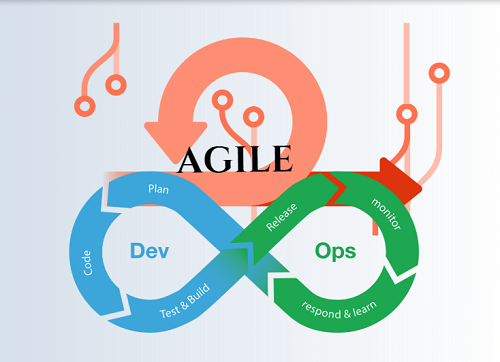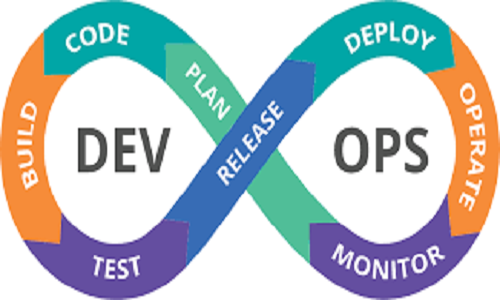DevOps Tools for Each Stage of the DevOps Lifecycle
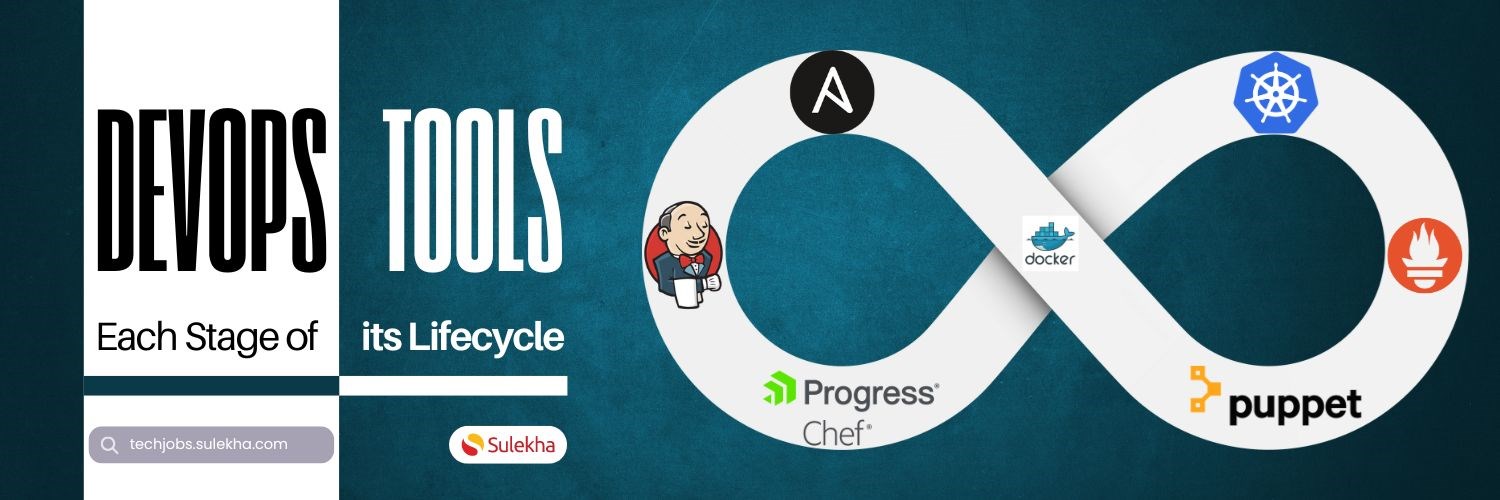
Welcome to our interactive guide on the "Top 10 DevOps Tools"! In today's fast-paced development environment, leveraging the right DevOps tools is essential for streamlining workflows, enhancing collaboration, and ensuring seamless integration and delivery. Our comprehensive exploration of the DevOps toolchain will provide you with insights into the most effective tools that can transform your DevOps processes.
Why DevOps a demanding career path?
DevOps is a demanding career path due to the high demand for skilled professionals in organizations adopting DevOps practices, leading to competitive salaries and job growth opportunities. DevOps professionals actively participate in software development and delivery, ensuring high-quality software and meaningful change. The industry's rapid growth and the need for experienced individuals to fill the gap in DevOps roles make it a promising and rewarding career choice. Additionally, the continuous learning and innovation required in DevOps and the opportunity to work with cutting-edge technologies contribute to its demanding yet fulfilling nature.
According to Market.US, the Global Development and Operations (DevOps) Market is expected to be worth around USD 66.0 billion by 2033, up from USD 11.5 billion in 2023. It will grow at a CAGR of 19.1% during the forecast period from 2024 to 2033.
What is DevOps?
DevOps is a philosophy and approach to software development that emphasizes collaboration and communication between development (Dev) and operations (Ops) teams. It aims to break down silos between these traditionally separate teams, fostering a culture of shared responsibility for building, testing, deploying, and maintaining software. This collaboration allows faster development cycles, more reliable deployments, and quicker issue response times. DevOps utilizes tools and automation to streamline workflows throughout the entire software lifecycle.
The type of DevOps toolchain
An open DevOps toolchain development is a flexible system that allows teams to select and integrate various tools to support their software development and deployment processes. DevOps development tools offers greater adaptability than proprietary toolchains, reducing vendor lock-in and enabling customization. Open toolchains facilitate seamless integration and automation, increasing productivity and reducing manual work. If you intended to learn all demanding DevOps development tools comprehensively, you can join DevOps tools and development certification training. Now, we shall discuss the most popular tools for DevOps.
Discover
Jira Product Discovery, Mural and Miro
During the Discover stage of a project, Jira Product Discovery, Mural, and Miro form essential components of the toolchain used by teams. Jira facilitates efficient project management by organizing tasks, user stories, and feedback loops, ensuring alignment on project objectives and tracking progress seamlessly. Mural and Miro complement this process by providing digital whiteboards where teams can collaboratively brainstorm, ideate, and visually map out workflows. These DevOps tools enable teams to generate and refine ideas effectively, fostering creativity and enhancing decision-making as they explore and define project scope and requirements.
Plan
Jira, Confluence, Slack logo
Jira, Confluence, and Slack are DevOps tools used for planning. Jira is a project management DevOps tool for tracking and organizing work, while Confluence is a collaboration platform for creating and sharing project-related information. Slack is a communication tool for real-time messaging and collaboration. These DevOps tools can be integrated to streamline workflows, reduce context switching, and improve productivity. Jira sends notifications to Slack channels for new tasks or issues, while Confluence sends notifications for page edits or comments. Slack allows teams to collaborate on Jira issues, assign tasks, transition issues, and create new problems, all within the Slack interface.
Build
Kubernetes and Docker
Kubernetes and Docker are the best DevOps tools used by developers and operations teams to build, deploy, and manage software applications. Docker helps package applications and their dependencies into containers, which are like self-contained units that can run anywhere. On the other hand, Kubernetes helps manage these containers at scale, handling tasks like deployment, scaling, and load balancing across multiple servers or clusters. Together, they make it easier for teams to develop, deploy, and maintain their applications consistently and efficiently, saving time and reducing errors.
Infrastructure as code
Ansible, Chef, Docker, Puppet, Terraform
Ansible, Chef, Docker, Puppet, and Terraform are pivotal DevOps tools known for automating infrastructure management, containerization, and configuration management across diverse IT environments.
Ansible, Chef, Docker, Puppet, and Terraform DevOps tools used for Infrastructure as Code (IaC). Ansible is known for its simplicity and uses YAML-based playbooks to configure systems and orchestrate workflows.
Chef and Puppet transform infrastructure into code using reusable definitions like cookbooks and recipes, enforcing consistency and automating deployment.
Docker provides containerization for applications, making it easier to package and deploy software across different environments.
Terraform is a cloud infrastructure provisioning DevOps tool that uses declarative configurations to define infrastructure resources. It enables teams to manage and scale infrastructure efficiently.
These DevOps tools collectively enable teams to automate infrastructure provisioning, setup, and management, ensuring consistency, scalability, and efficiency in DevOps.
Source control and collaborative coding
Bitbucket, GitHub, and GitLab
Bitbucket, GitHub, and GitLab are popular DevOps tools in source control and collaborative coding. Bitbucket is a product of Atlassian and is offered as a cloud solution or a self-managed solution for enterprises that want complete control over their development environment. Bitbucket offers free private repositories for up to five users and integrates seamlessly with other Atlassian products such as:
· Jira
· Trello
· Confluence
Bitbucket's features include:
· Version control
· Source control
· Code review
· Task management
· Integrations with third-party services
On the other hand, GitHub offers extensive, platform-native capabilities for CI/CD with GitHub Actions, which are included in GitHub Enterprise.
GitHub's features include:
· Project management
· CI/CD
· Automation
· Security scanning
GitLab is a complete DevOps platform with free and paid versions. It offers both community and enterprise editions and aims to provide a single application for managing the DevOps lifecycle.
GitLab's features include:
· Built-in CI/CD and AutoDevOps services
· GitLab ChatOps
· Direct integration with Terraform IaC tool
· Security scanning
· License compliance
· Dynamic application security testing
Continuous Delivery
Jenkins, AWS, and Bitbucket are popular DevOps tools in continuous delivery.
Jenkins supports parallelism for running multiple jobs concurrently, reducing build times and speeding up feedback loops. Jenkins offers an intuitive web-based interface with a visually appealing dashboard, making it easy for developers to monitor build status and manage pipelines.
AWS CodePipeline is a fully managed continuous integration and continuous delivery (CI/CD) service from Amazon Web Services. It offers native integration with other AWS services, allowing developers to build, test, and deploy applications seamlessly within the AWS ecosystem. If you want to learn how DevOps with AWS operate efficiently, you can join DevOps with AWS Training and Certification course is an intensive program designed to equip participants with the knowledge and skills required to execute and operate DevOps practices using the tools and services provided by Amazon.
Bitbucket Pipelines is a continuous integration and continuous delivery (CI/CD) service integrated directly within Atlassian's Bitbucket. It offers simplified YAML configuration, enabling developers to define and automate CI/CD pipelines for their projects. Pipelines are triggered automatically upon code changes or pull requests, ensuring continuous integration.
Automated Testing
Xray, mabl, Snyk, Zephyr, and Zephyr Squad
Xray, mabl, Snyk, Zephyr, and Zephyr Squad are DevOps testing tools that work together to enhance the testing process in DevOps. Xray and Zephyr are test management tools that help teams organize, monitor, and track testing progress, while mabl is a low-code test automation tool that enables teams to scale test authoring and improve test coverage.
Snyk is a security tool that helps identify and fix vulnerabilities in open-source dependencies, ensuring secure code delivery. Zephyr Squad integrates with test automation tools and frameworks, allowing teams to deliver quality products quickly and scale. These tools work together to provide a comprehensive testing solution for DevOps teams, ensuring high-quality software delivery and efficient testing processes.
Deployment dashboards
Jira
Jira DevOps tools support deployment dashboards with continuous integration/continuous deployment (CI/CD) systems. This provides real-time tracking of builds and deployments. You can monitor key metrics like deployment status and progress through customizable dashboards, allowing your team to focus on critical data.
Moreover, Automation features let you automate tasks based on deployment outcomes, such as sending alerts or updating issue statuses. Integrations with tools like Confluence enhance collaboration and communication, ensuring team alignment.
Automated deployment
Bitbucket and Zephyr
Bitbucket and Zephyr are DevOps tools used for automated deployment. Bitbucket Pipelines is an integrated CI/CD service built into Bitbucket that allows automatic code building, testing, and deployment based on a configuration file in the repository.
On the other hand, Zephyr is a test management tool that provides suitable QA tools to perform functional, integration, and performance testing, ensuring that every code check-in is production ready. Zephyr integrates with other project management, issue tracking, and automation tools in the DevOps toolchain, offering end-to-end traceability across Jira and an array of CI/CD tools, making it easier for DevOps teams to realize the benefits of an integrated tool ecosystem.
Incident, change, and problem tracking
Jira Service Management, Jira Software, Opsgenie, Statuspage
DevOps teams leverage DevOps tools for incident, change, and problem tracking. Jira Service Management is the core, handling incidents and integrating with Opsgenie to alert on-call engineers. Statuspage keeps everyone informed with real-time updates. Jira Software tracks changes and approvals, while problem tickets stemming from incidents can be linked for deeper analysis in Jira Software, creating a unified workflow.
Observe
In the Observe stage of a project, DataDog, Slack, Splunk, New Relic, Nagios, and Dynatrace are integral components of the DevOps tools toolchain. DataDog provides real-time performance monitoring and analytics, ensuring systems operate smoothly. Splunk offers comprehensive log analysis and management, helping teams track and troubleshoot issues. New Relic delivers detailed insights into application performance, while Nagios monitors system health and network performance. Dynatrace uses AI to detect anomalies and optimize applications, and Slack integrates with these tools to facilitate instant communication and alerts among team members. Together, these DevOps tools enable continuous monitoring, rapid issue detection, and efficient collaboration to maintain system reliability and performance.
· DataDog provides a holistic view of system performance.
· Slack facilitates real-time communication among team members.
· Splunk offers in-depth data analysis for troubleshooting.
· New Relic monitor application performance, while Nagios and Dynatrace ensure system health and performance are continuously monitored and optimized, resulting in smoother development cycles and faster problem resolution.
Continuous Feedback
GetFeedback, Slack, Jira Service Management, Pendo
DevOps tools like GetFeedback, Slack, Jira Service Management, and Pendo are used for Continuous Feedback in the DevOps lifecycle. GetFeedback and Pendo help collect and analyze user feedback, while Slack and Jira Service Management facilitate real-time communication and incident tracking. These tools enable organizations to promptly gather and respond to feedback, ensuring continuous improvement and alignment with user needs.
In conclusion
By using a combination of these DevOps tools, teams can achieve a more efficient and cohesive DevOps process, leading to faster software delivery, reduced errors, and enhanced productivity. The flexibility to choose specific tools for each stage allows teams to tailor their DevOps workflows to their unique requirements, ensuring a seamless integration of development and operations.
Ultimately, selecting the right DevOps tools can significantly impact an organization's ability to deliver high-quality software, respond quickly to changing demands, and maintain robust monitoring and feedback mechanisms. This comprehensive toolchain empowers teams to achieve their DevOps goals with greater agility and collaboration. If you intended to acquire DevOps foundational skills, you can approach Sulekha, which provides list of course providers to choose among best.
Find a course provider to learn DevOps
Java training | J2EE training | J2EE Jboss training | Apache JMeter trainingTake the next step towards your professional goals in DevOps
Don't hesitate to talk with our course advisor right now
Receive a call
Contact NowMake a call
+1-732-338-7323Take our FREE Skill Assessment Test to discover your strengths and earn a certificate upon completion.
Enroll for the next batch
DevOps Hands-on Training with Job Placement
- Feb 13 2026
- Online
DevOps Hands-on Training with Job Placement
- Feb 16 2026
- Online
DevOps Hands-on Training with Job Placement
- Feb 17 2026
- Online
DevOps Hands-on Training with Job Placement
- Feb 18 2026
- Online
DevOps Hands-on Training with Job Placement
- Feb 19 2026
- Online
Related blogs on DevOps to learn more

The benefits of uniting product management with DevOps
DevOps is focused on streamlining the software development and deployment processes, enabling faster and more frequent releases. By integrating product management into the DevOps workflow, product managers can have more visibility into the developmen

DevOps Platform Market 2023 to Showing Impressive Growth by 2030
In 2023, the DevOps platform market has faced a rapid increase, with forecasts indicating a massive expansion by 2030. This sector's growth is driven by the increased adoption of DevOps concepts and tools across industries. DevOps, which focuses on c
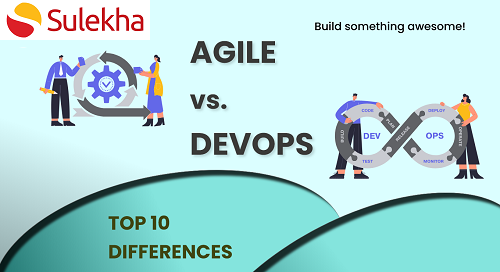
Scrum with DevOps: Integrating Agile and DevOps Practices
Scrum with DevOps: Integrating Agile and DevOps Practices
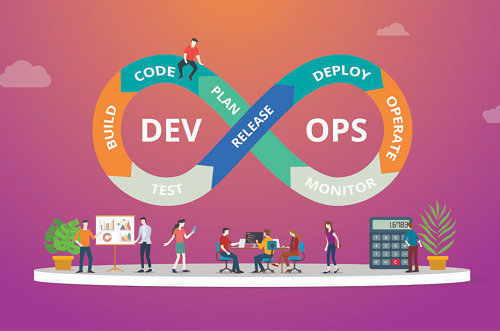
Mastering DevOps: A Comprehensive Bootcamp Course
Introduction
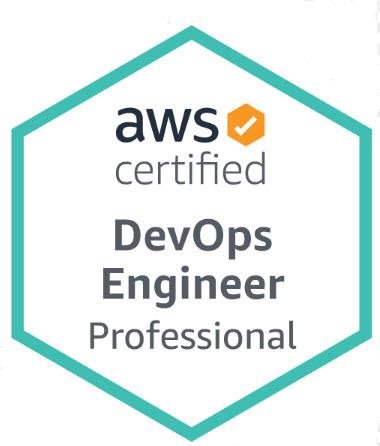
Best AWS Devops Engineer Professional Certification Dumps
DevOps Certification Over the past decade, DevOps, many companies used DevOps to lower their deployment time and increase their agility. DevOps helps to automate between 6 Cs. (Continuous business planning, collaborative development, continuous test
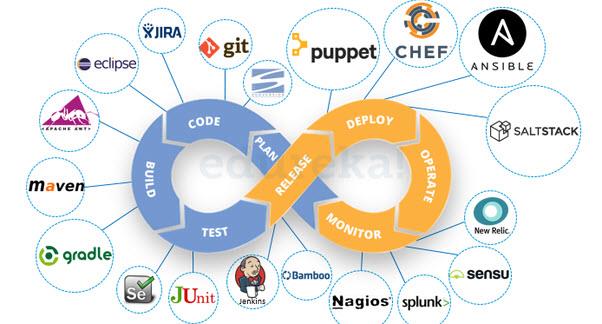
DevOps Market Research Report Analysis and Forecast: 2018 to 2023
Forecast report entitled “Global DevOps Tool Market 2018 Research Report Analysis and Forecast: 2018 to 2023”. When you go through the report thoroughly, you will find that the report is a top to bottom analysis of the happenings of DevOps Tool Indus
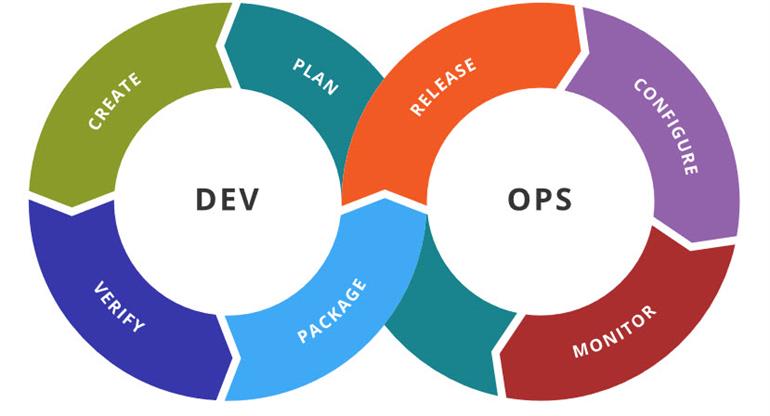
What are the Top 10 DevOps Barriers?
There are many barriers to implementing DevOps successfully, some of them with proper solutions given in the post.

The need for Systems Thinking in DevOps!
The advent of DevOps skills which is nothing but the combined package of Development and Operations that promises to deliver the promised result at the earliest possible time-frame. There are several core principles in DevOps that intends to complete
Latest blogs on technology to explore

Drug Safety & Pharmacovigilance: Your 2026 Career Passport to a Booming Healthcare Industry!
Why This Course Is the Hottest Ticket for Science Grads & Healthcare Pros (No Lab Coat Required!)" The Exploding Demand for Drug Safety Experts "Did you know? The global pharmacovigilance market is set to hit $12.5B by 2026 (Grand View Research, 202

Launch Your Tech Career: Why Mastering AWS Foundation is Your Golden Ticket in 2026
There’s one skill that can open all those doors — Amazon Web Services (AWS) Foundation

Data Science in 2026: The Hottest Skill of the Decade (And How Sulekha IT Services Helps You Master It!)
Data Science: The Career that’s everywhere—and Nowhere Near Slowing Down "From Netflix recommendations to self-driving cars, data science is the secret sauce behind the tech you use every day. And here’s the kicker: The U.S. alone will have 11.5 mill

Salesforce Admin in 2026: The Career Goldmine You Didn’t Know You Needed (And How to Break In!)
The Salesforce Boom: Why Admins Are in Crazy Demand "Did you know? Salesforce is the 1 CRM platform worldwide, used by 150,000+ companies—including giants like Amazon, Coca-Cola, and Spotify (Salesforce, 2025). And here’s the kicker: Every single one

Python Power: Why 2026 Belongs to Coders Who Think in Python
If the past decade was about learning to code, the next one is about coding smarter. And in 2026, the smartest move for any IT enthusiast is learning Python — the language that powers AI models, automates the web, and drives data decisions across ind

The Tableau Revolution of 2025
"In a world drowning in data, companies aren’t just looking for analysts—they’re hunting for storytellers who can turn numbers into decisions. Enter Tableau, the #1 data visualization tool used by 86% of Fortune 500 companies (Tableau, 2024). Whether

From Student to AI Pro: What Does Prompt Engineering Entail and How Do You Start?
Explore the growing field of prompt engineering, a vital skill for AI enthusiasts. Learn how to craft optimized prompts for tools like ChatGPT and Gemini, and discover the career opportunities and skills needed to succeed in this fast-evolving indust

How Security Classification Guides Strengthen Data Protection in Modern Cybersecurity
A Security Classification Guide (SCG) defines data protection standards, ensuring sensitive information is handled securely across all levels. By outlining confidentiality, access controls, and declassification procedures, SCGs strengthen cybersecuri

Artificial Intelligence – A Growing Field of Study for Modern Learners
Artificial Intelligence is becoming a top study choice due to high job demand and future scope. This blog explains key subjects, career opportunities, and a simple AI study roadmap to help beginners start learning and build a strong career in the AI

Java in 2026: Why This ‘Old’ Language Is Still Your Golden Ticket to a Tech Career (And Where to Learn It!
Think Java is old news? Think again! 90% of Fortune 500 companies (yes, including Google, Amazon, and Netflix) run on Java (Oracle, 2025). From Android apps to banking systems, Java is the backbone of tech—and Sulekha IT Services is your fast track t
